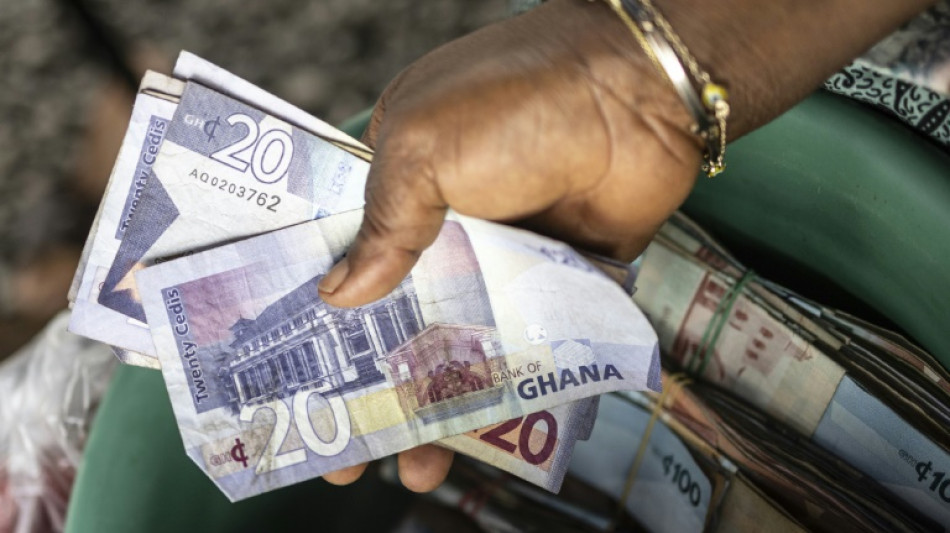
RBGPF
0.0000

Ghana's new government on Tuesday announced it was scrapping several Covid-era taxes introduced in an effort to secure IMF financing, citing the economic hardship placed on ordinary citizens.
Five taxes deemed "nuisance levies" by the current government -- including a one-percent levy on mobile money transfers and a value-added tax on motor vehicle insurance -- are being cancelled, Finance Minister Cassiel Ato Forson said, presenting the government's 2025 budget.
With the economy in "severe distress" -- in part from debt mismanagement and financing shortfalls -- concerns quickly emerged over how the government planned to close the resulting revenue shortfall.
Authorities say they are seeking to help Ghanaians struggling with soaring inflation and a depreciating currency and will introduce alternative measures to enhance tax collection.
"The removal of these taxes will ease the burden on households and improve their disposable incomes," Forson told lawmakers in the capital Accra. "In addition, it will support business growth."
The other scrapped levies are a 10-percent tax on lottery winnings, an emission levy on industries and vehicles and a 1.5-percent tax on unprocessed gold from small-scale miners.
They were introduced as part of efforts by the previous government to reach a $3-billion International Monetary Fund bailout, which was eventually secured in 2023.
Forson assured parliament that the new government under President John Mahama, elected in December, had "stopped the bleeding".
Plans are in place to amend the Revenue Administration Act to improve tax revenue collection, which is expected to yield an additional 0.3 percent of GDP.
Additionally, the government wants to enhance road toll collection this year as part of its infrastructure development initiative, dubbed the "Big Push".
- Gold sector reform -
The tax cuts come as the economic crisis that pushed debt-laden Ghana towards the IMF in the first place continues apace.
"We inherited an economy in deep crisis, hard hit with debt and beset by other fiscal challenges such as large accumulation of arrears, energy sector financing shortfalls and large fiscal risks from the cocoa and financial sectors," Forson said.
Praising the government's move, economist Daniel Amateye Anim-Prempeh told AFP that "the removal of these nuisance taxes will put money back into the pockets of citizens and help businesses recover".
"However, the success of these measures will depend on the government's ability to boost revenue collection without increasing the fiscal deficit."
Additionally, the government is setting up the Ghana Gold Board to help regulate and manage the sector, with the aim of increasing foreign exchange reserves and stabilising the local currency.
Illegal mining, locally known as galamsey, has exploded as high gold prices have drawn more workers to the sector -- leaving environmental devastation in its wake.
A.El-Ahbaby--DT